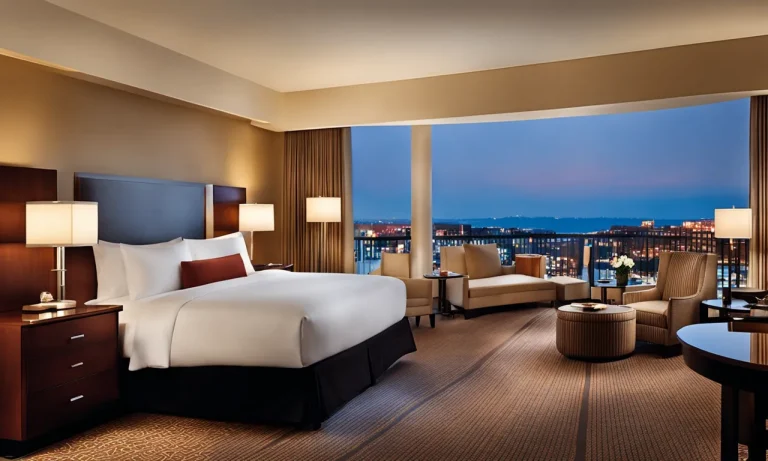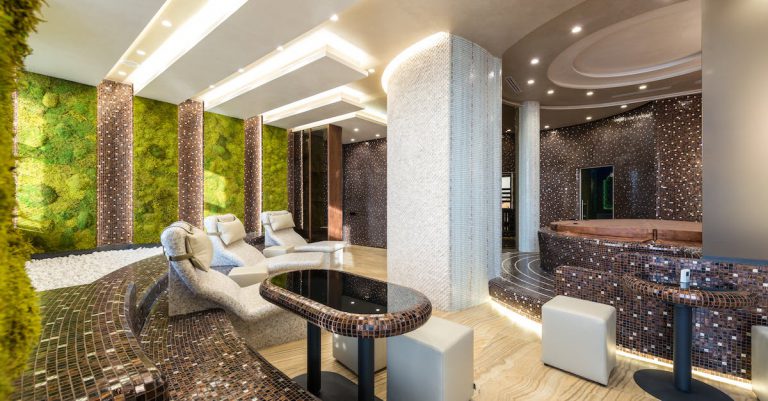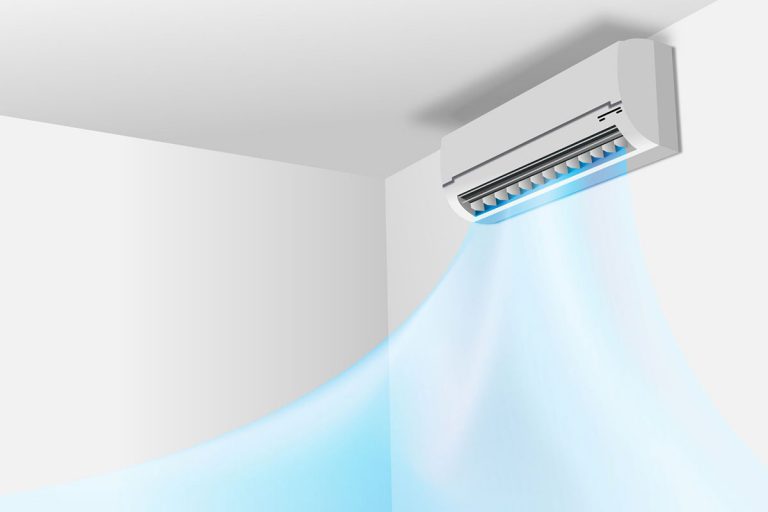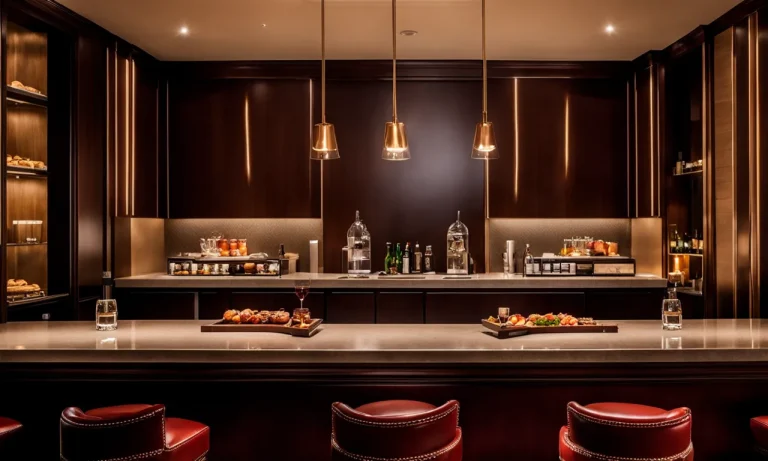Have you ever wondered what rights you are entitled to when you check into a hotel? Understanding your rights as a hotel guest is crucial to ensuring you get the service you deserve and can address any issues appropriately.
If you’re short on time, here’s a quick answer to your question: The rights of hotel guests can encompass a variety of areas including the right to a clean and safe environment, privacy, and fair treatment, among others. However, these can vary based on local laws and hotel policies.
In this article, we will detail these rights, explain situations where they may be compromised, and provide guidance on how to assert your rights as a guest.
Rights Related to Safety and Cleanliness
Safe Environment
As a hotel guest, you have the right to expect a safe environment during your stay. This includes measures taken by the hotel to ensure the safety of its guests. Safety features such as well-lit hallways and parking lots, functioning fire alarms and extinguishers, and secure locks on doors and windows should be provided by the hotel.
Additionally, hotels should have security personnel or surveillance systems in place to ensure the safety of their guests. It is important to note that these safety measures may vary depending on the location and type of hotel you are staying in. If you have any concerns about the safety of your surroundings, don’t hesitate to notify the hotel staff.
Clean and Sanitary Conditions
Another important right of hotel guests is to have clean and sanitary conditions in their rooms and common areas. Hotels should maintain a high level of cleanliness to ensure the comfort and well-being of their guests. This includes regular cleaning of rooms, bathrooms, and common areas, as well as providing fresh linens, towels, and toiletries.
If you notice any cleanliness issues during your stay, such as dirty or stained sheets, unclean bathrooms, or lack of proper sanitation measures, it is important to bring it to the attention of the hotel staff immediately. They should take immediate action to rectify the situation and ensure that you have a clean and hygienic environment.
It is worth mentioning that hotels are subject to health and safety regulations imposed by local authorities. These regulations set the standards for cleanliness and sanitation that hotels must adhere to.
In the United States, for example, hotels must meet the requirements set by the Occupational Safety and Health Administration (OSHA) and the Centers for Disease Control and Prevention (CDC). These organizations provide guidelines and best practices for hotels to maintain a safe and clean environment for their guests.
Rights to Privacy
As a hotel guest, you have certain rights to privacy that are important to understand. These rights ensure that you can enjoy your stay without any unnecessary intrusion or violation of your personal space. The two main aspects of privacy that you should be aware of are in-room privacy and data and personal information privacy.
In-Room Privacy
When you check into a hotel room, you have the right to expect a certain level of privacy within the confines of that space. This means that hotel staff should not enter your room without your permission, unless there is an emergency or a valid reason to do so. It is important to note that housekeeping staff may need to enter your room to clean and maintain it, but they should do so respecting your privacy. You can also use the “Do Not Disturb” sign on your door to indicate that you do not want to be disturbed.
Additionally, you should be aware that hotel rooms are equipped with security measures such as locks and peepholes to ensure your safety and privacy. It is advisable to use these features and take precautions to secure your belongings while you are out of the room.
Data and Personal Information Privacy
With the increasing use of technology in hotels, there is also a need to protect your data and personal information. Hotels collect various types of data, such as your name, contact information, and payment details, to process your reservation and provide you with a personalized experience. It is your right to expect that this information is handled securely and in accordance with privacy laws and regulations.
Hotels should have measures in place to protect your data from unauthorized access, disclosure, or misuse. This includes using secure payment systems, encrypting sensitive information, and implementing strict access controls. It is important to read the hotel’s privacy policy to understand how your data will be used and protected.
Furthermore, as a guest, you have the right to request access to your personal information held by the hotel and to correct any inaccuracies. You also have the right to opt out of any marketing communications or data sharing arrangements.
Rights to Fair Treatment
As a hotel guest, you have certain rights to fair treatment that are protected by law. These rights ensure that you are treated with respect and receive the services you paid for. Two important aspects of fair treatment are non-discriminatory services and complaint management and redressal.
Non-discriminatory Services
Hotels are required to provide non-discriminatory services to all guests, regardless of their race, ethnicity, gender, religion, disability, or any other protected characteristic. This means that hotels cannot refuse to provide services or accommodations based on these factors. They also cannot treat guests differently or provide inferior services based on these factors.
It is important to note that hotels may have policies or rules in place to ensure the safety and well-being of all guests. However, these policies should be applied consistently and without discrimination. For example, a hotel may have a policy of requiring all guests to show identification upon check-in for security purposes. This policy should be applied to all guests equally, without singling out individuals based on their appearance or background.
Complaint Management and Redressal
If you have any issues or complaints during your stay at a hotel, you have the right to have them addressed in a fair and timely manner. Hotels should have a complaint management system in place to handle guest concerns and provide appropriate redressal.
When you have a complaint, the first step is to bring it to the attention of the hotel staff. They should listen to your concerns and take appropriate action to resolve the issue. This may involve offering a solution, compensating you for any inconvenience caused, or taking steps to prevent a similar issue from occurring in the future.
If the hotel staff is unable to resolve your complaint to your satisfaction, you may escalate the matter to a higher level of management or contact the hotel’s corporate office. In some cases, you may also consider filing a complaint with a consumer protection agency or seeking legal advice.
It is important to document your complaint and any actions taken by the hotel to address it. This can help support your case if you need to take further action. Keep records of any correspondence, receipts, or photographs that are relevant to your complaint.
Remember, as a hotel guest, you have the right to fair treatment. If you encounter any issues or feel that your rights have been violated, assertively and professionally communicate your concerns to the hotel staff. Most hotels value their guests and want to ensure a positive experience for everyone.
Also Read:
When Rights are Compromised
Hotel guests have certain rights that are protected by law. However, there are instances where these rights can be compromised, leading to a negative experience for guests. It is important for guests to be aware of their rights and understand what to do in case they feel their rights have been violated.
Instances of Rights Violations
There are several instances where hotel guests may find their rights compromised. One common violation is when a guest’s privacy is invaded. This can occur when hotel staff enter a guest’s room without permission or when personal information is shared without consent. Another violation is when a guest is subjected to discrimination based on their race, gender, religion, or any other protected characteristic. In some cases, guests may also experience mistreatment from hotel staff, such as rude or disrespectful behavior.
It is worth mentioning that these instances of rights violations are relatively rare. Most hotels prioritize the comfort and satisfaction of their guests and take their rights seriously. However, it is essential to be aware of these possibilities and know how to address them if they occur.
Recourse in Case of Rights Violation
If a hotel guest feels that their rights have been violated, there are steps they can take to seek recourse. The first course of action is to communicate the issue directly with the hotel management. They may not be aware of the problem and will often take immediate steps to address it. If the issue remains unresolved, guests can escalate their complaint to higher management or even consider legal action.
It is also advisable for guests to document any evidence of the rights violation, such as taking photos or videos, collecting witness statements, or keeping a record of any communication with hotel staff. This evidence can be crucial if legal action becomes necessary.
Additionally, guests can report the incident to relevant authorities or organizations that oversee the hotel industry. In some countries, there are specific agencies or ombudsman offices that handle consumer complaints and can mediate between guests and hotels to find a resolution.
Furthermore, guests can share their experiences on online review platforms or social media, which can serve as a warning to other potential guests and put pressure on the hotel to address the issue. However, it is important to provide accurate and fair information to avoid any legal implications.
Remember, while instances of rights violations are not common, it is crucial for hotel guests to be aware of their rights and know how to respond if they feel their rights have been compromised. By taking appropriate action, guests can hold hotels accountable and help ensure a positive experience for themselves and future guests.
Asserting Your Rights as a Hotel Guest
When you check into a hotel, you are not just paying for a place to sleep – you are also entitled to certain rights and protections as a guest. Understanding and asserting these rights can ensure a comfortable and enjoyable stay. Here are some key aspects to consider when it comes to asserting your rights as a hotel guest.
Understanding Hotel Policies
Before you book a hotel, it is important to familiarize yourself with their policies. This includes policies regarding cancellations, refunds, check-in and check-out times, and any additional fees or charges. By knowing the hotel’s policies in advance, you can avoid any surprises or misunderstandings during your stay.
It is also important to understand your rights as a guest in terms of the privacy and security of your personal belongings. Most hotels have safes or secure storage options for valuable items, but it is always a good idea to take precautions and lock your doors and windows when you leave your room. If you encounter any issues or concerns regarding your safety or privacy, don’t hesitate to bring them to the attention of hotel staff.
Reporting Violations
If you encounter any violations of your rights as a hotel guest, it is crucial to report them to the appropriate authorities. This includes any incidents of theft, harassment, or discrimination. In cases where your safety or well-being is at risk, contact the hotel management immediately and, if necessary, involve the local authorities.
When reporting violations, it is important to provide as much detail as possible, including dates, times, names of individuals involved, and any evidence you may have, such as photographs or witness statements. This information will help in the investigation and resolution of the issue.
Remember that asserting your rights as a hotel guest is not just about protecting yourself – it also helps to ensure that hotels maintain high standards of service and guest satisfaction. By reporting violations, you contribute to creating a safer and more enjoyable experience for all guests.
For more information on your rights as a hotel guest, you can visit websites such as www.bcpa.org
Conclusion
In conclusion, the rights of hotel guests cover a range of aspects from safety and cleanliness to privacy and fair treatment. These rights are crucial in ensuring a satisfactory stay and are designed to protect you from any undue mishaps or inconveniences. However, these rights may be compromised in some situations. Knowing your rights and understanding the hotel’s policies can help you effectively address these issues. If you believe your rights as a guest have been violated, it’s important to take appropriate action, which may include reporting the violation to hotel management or relevant authorities. Remember, being an informed guest makes for a more empowered and enjoyable hotel stay.






